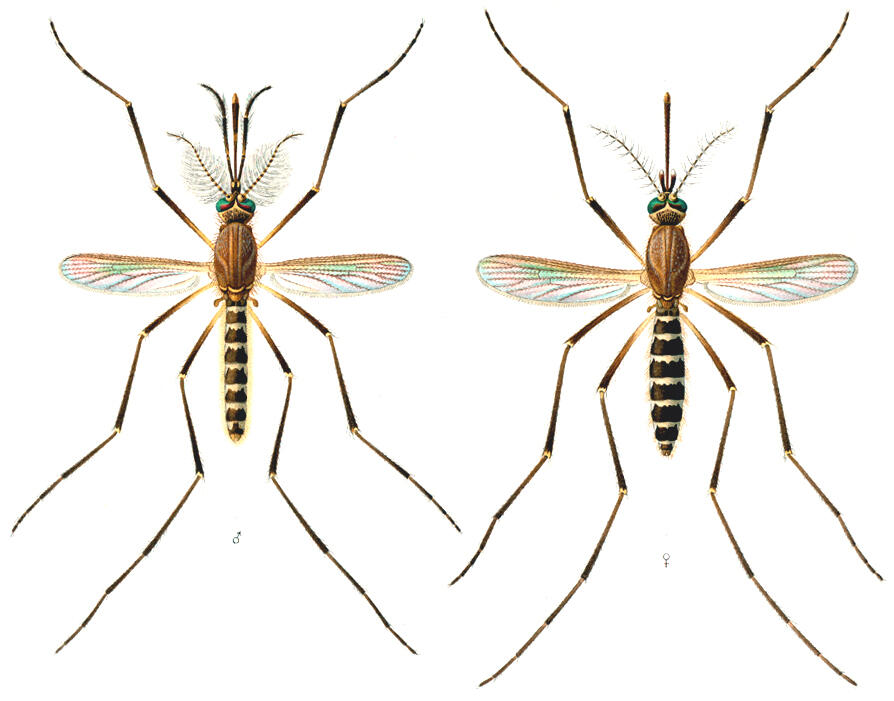
LSTM scientists working alongside the University of Wisconsin have developed a system allowing them to transplant the entire microbiomes from one mosquito cohort to another. In a paper published in the Microbiome Journal, the researchers developed and validated both inter-species and intra-species microbiome transplantations between Culex quinquefasciatus to Aedes aegypti and Aedes aegypti to Aedes aegypti.
Mosquitoes harbour microbial communities that play important roles in their growth, survival, reproduction, and ability to transmit human pathogens. Microbiome transplantation approaches are often used to study host-microbe interactions and identify factors associated with health or disease. However, no such approaches have been accomplished to manipulate the microbiota of mosquitoes.
LSTM’s Dr Grant Hughes, who led the team, said: “The development of this transplantation system will have profound implications for mosquito research, as we attempt to explore the role of the microbiome on mosquito phenotypes. Many studies have found correlations between the microbiome and the variety of phenotypes in mosquitoes. However, often these studies have not given an accurate picture of causality. With the capacity to create bespoke microbiomes in mosquitoes we can now undertake more elegant experiments to demonstrate the role of microbes or the entire microbiome in a particular mosquito phenotype.”
To develop this novel system, the team extracted the microbiome from adult mosquitoes and determined how many mosquitoes should be used to create a donor microbiome. After transplantation, the team monitored the recipient’s microbiota throughout the whole mosquito lifecycle and found that its dynamics behaved as would be expected in a mosquito that received its microbiome in a conventional fashion. To expand on this work, the researchers are planning to transfer “field” microbiomes to a laboratory mosquito line, as the environment profoundly influences the mosquito microbiota. With the approaches developed by the researchers, they can collect mosquitoes from the field, extract and ship their microbiomes to the laboratory and transfer these into the laboratory-reared mosquitoes to conduct experiments in the lab with a field-relevant microbiome.
Dr Hughes continued: “This study provides evidence for successful microbiome transplantation in mosquitoes and our results highlight the value of such methods for studying mosquito-microbe interactions and lays the foundation for future studies to investigate factors underlying microbiota acquisition, assembly, and function in mosquitoes under controlled conditions.”
Watch a video produced by the Microbiome journal, about the paper.
The paper can be accessed here.